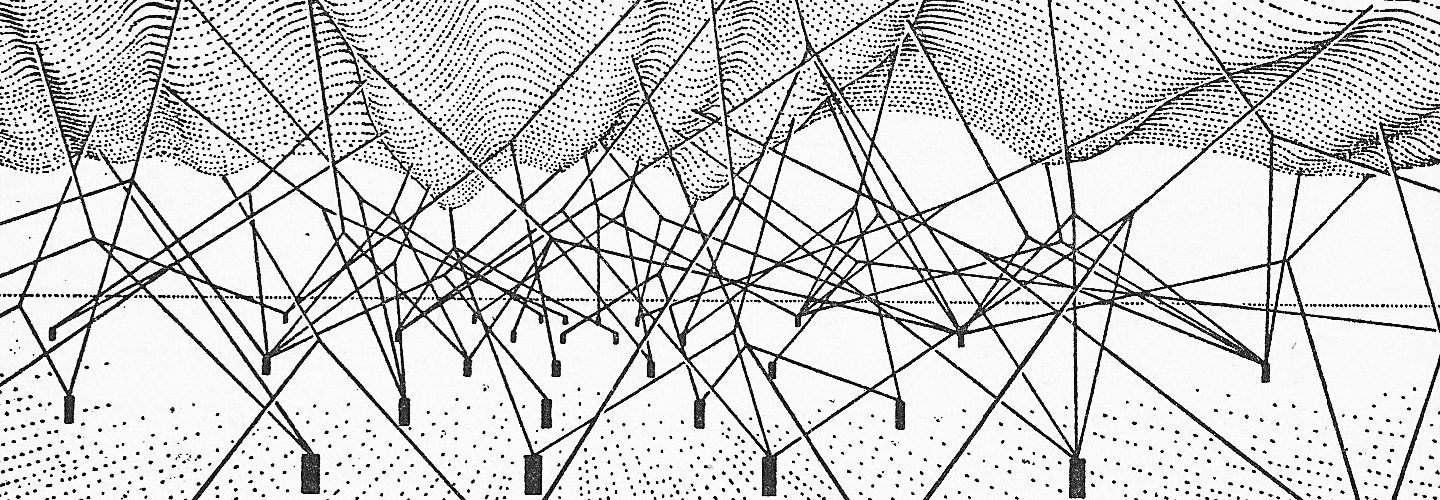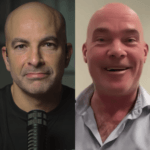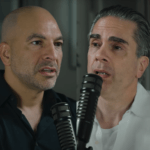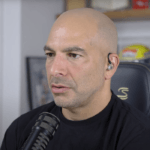In this episode, David A. Sinclair, Ph.D., a Professor in the Department of Genetics at Harvard Medical School and co-Director of the Paul F. Glenn Center for the Biological Mechanisms of Aging, provides insight into why we age and how to slow its effects based on his remarkable work on the role of sirtuins and NAD in health and diseases. He also presents the case that stabilizing the epigenetic landscape may be the linchpin in counteracting aging and disease.
Subscribe on: APPLE PODCASTS | RSS | GOOGLE | OVERCAST | STITCHER
We discuss:
- How and why David moved from Australia to Lenny Guarente’s lab at MIT [7:30];
- Sirtuins and aging [15:00];
- A series of experiments elucidating the mechanisms of sirtuins [20:45];
- How are sirtuins activated? [25:30];
- NAD and sirtuin activation [31:00];
- Nicotinamide, sirtuin inhibition, and PNC1 [39:00];
- Resveratrol [43:00];
- The NIH/ITP studies on resveratrol [55:45];
- Does David take any compounds for longevity? [1:00:15];
- NAD precursors (NR, NMN) and pterostilbene [1:02:45];
- Female fertility and NAD precursors [1:14:45];
- A unifying theory of aging [1:20:30];
- Waddington’s epigenetic landscape [1:23:00];
- If David had unlimited resources, what is the experiment he would do? [1:28:25];
- Testing combinations to extend lifespan [1:31:30];
- What made David aware of his mortality at such a young age? [01:33:45];
- What is David’s book going to cover? [01:37:15]; and
- More.

David Sinclair, Ph.D.
David A. Sinclair, Ph.D. is a Professor in the Department of Genetics at Harvard Medical School and co-Director of the Paul F. Glenn Center for the Biological Mechanisms of Aging.
He is best known for his work on understanding why we age and how to slow its effects. He obtained his Ph.D. in Molecular Genetics at the University of New South Wales, Sydney in 1995. He worked as a postdoctoral researcher at M.I.T. with Dr. Leonard Guarente where he co-discovered a cause of aging for yeast as well as the role of Sir2 in epigenetic changes driven by genome instability. In 1999 he was recruited to Harvard Medical School where his laboratory’s research has focused primarily on understanding the role of sirtuins in disease and aging, with associated interests in chromatin, energy metabolism, mitochondria, learning and memory, neurodegeneration, and cancer. He has also contributed to the understanding of how sirtuins are modulated by endogenous molecules and pharmacological agents such as resveratrol.
Dr. Sinclair is co-founder of several biotechnology companies (Sirtris, Ovascience, Genocea, Cohbar, MetroBiotech, ArcBio, Liberty Biosecurity) and is on the boards of several others. He is also co-founder and co-chief editor of the journal Aging. His work is featured in five books, two documentary movies, 60 Minutes, Morgan Freeman’s “Through the Wormhole” and other media.
He is an inventor on 35 patents and has received more than 25 awards and honors including the CSL Prize, The Australian Commonwealth Prize, Thompson Prize, Helen Hay Whitney Postdoctoral Award, Charles Hood Fellowship, Leukemia Society Fellowship, Ludwig Scholarship, Harvard-Armenise Fellowship, American Association for Aging Research Fellowship, Nathan Shock Award from the National Institutes of Health, Ellison Medical Foundation Junior and Senior Scholar Awards, Merck Prize, Genzyme Outstanding Achievement in Biomedical Science Award, Bio-Innovator Award, David Murdock-Dole Lectureship, Fisher Honorary Lectureship, Les Lazarus Lectureship, Australian Medical Research Medal, The Frontiers in Aging and Regeneration Award, Top 100 Australian Innovators, and TIME magazine’s list of the “100 most influential people in the world”. [medapps.med.harvard.edu]
David on LinkedIn: David A. Sinclair, Ph.D. A.O.
David on Twitter: @davidasinclair
(Boston, MA - 3/23/17) David Sinclair, director of the Paul F. Glenn Center for the Biology of Aging at Harvard Medical School, discovered how to reverse aging in mice, Thursday, March 23, 2017. Staff photo by Angela Rowlings.






Absolutely excellent podcast. Really informative. Thanks a million for that, Peter. I have a question: what would you recommend as most effective for treating/overcoming liver disease in a mature individual?
Wow .. I watched your words on YouTube.. I find it very interesting. I will get your books asap!
Dear Dr. Sinclair,
I have bought your book and followed you and your team of distinguished scientists
for some time.
I have been listening to your podcasts with a great deal of interests.
I admire your philosophy and the legacy that you want to leave for you, your family, and the humanity.
I am a 6 ht generation physician in my family and come from an immigrant family.
I am going to follow your recommendations especially because I had to have
Quadruple bypass at age 60 with a low HDL of 30.
we were created to live longer and be able to reproduce in a semi starvation mode,
caloric restriction and all the magical pathways that you and your team have discovered
I appreciate if you could let me know what NAD supplement you recommend..
I want to incorporate this in my practice and recommend your book to my patients.
my last request is if you could allow me to become the chairman of your and your team fan club.!!
with much appreciation and admiration ,
Alfred Aflatooni,MD.
Thanks for the excellent podcast and videos on youtube. I just ordered your book via audible. I have taken metformin on and off for longevity and I have completed an extended fast and also do intermittent fasting. I gave birth to my 3rd child at the age of 50, and I am very interested in living long enough to see his grandchildren.
Pterostilbene is 4x more bioavailable and half life is 7x longer than resveratrol. Just an FYI. What is the mechanistic link/association between sirtuins and telomerase activity/expression? Why do NAD levels fall as we age? CD38 activity from what I gathered in response to mitochondrial insult. All roads lead to optimizing for mitochondrial health as far as I can tell and why all of the age associated disease share a common link, sick mitochondria.
A thought experiment immediately comes to mind. Is the longevity benefit of a ketogenic diet (in mouse models anyway) a function of decreased rate of NAD depletion? Difficult to test as we can’t to my knowledge measure NAD levels. Plus the ketones themselves present a confounding variable through their own HDAC inhibition. Control for that with exogenous ketone supplementation in a control group?
I would assume that if it’s all about optimizing NAD levels, David must involved in some mouse model research administering NAD precursors. I’d certainly be very interested in seeing results of said research. There’s gotta be more to longevity than just supplementing with NAD precursors. I share David’s optimism that we will crack this aging thing, but if/when we do, and the question comes down to how long do we want to live, well, how long would we, assuming we preserved our health span as well as the time aspect.
Here, as on other episodes of The Drive and other podcasts, Dr. Sinclair states that resveratrol is better-absorbed by taking it with fat. The only two studies that have looked at this in humans have found that fat in a meal either has no effect on, or *inhibits* , resveratrol absorption:
https://pubmed.ncbi.nlm.nih.gov/?term=20528005+OR+19000554&format=abstract